You’ve likely heard of the rich cultural heritage of this ancient city, known as the “City of Mosques.” With a history that spans centuries, Dhaka is a treasure trove of cultural experiences waiting to be explored. As the capital of Bangladesh, it has evolved into a bustling metropolis of around 15 million people, offering a unique blend of traditional and modern attractions.
As visitors to this vibrant city, you’ll discover a plethora of things to see and do, from historical landmarks to culinary adventures. This comprehensive guide will introduce you to the top tourist attractions and places to visit, helping you navigate the city’s diverse offerings and create an unforgettable itinerary.
Discovering the Vibrant Capital of Bangladesh
As you step into Dhaka, the capital of Bangladesh, you’ll be greeted by a city that’s a fascinating blend of old and new. This city, with its rich history and modern aspirations, offers a unique experience for visitors.

Understanding Dhaka’s Old and New Districts
Dhaka is divided into two distinct areas: Old Dhaka and New Dhaka. Old Dhaka is known for its chaotic yet vibrant streets, filled with historical treasures that reflect the city’s Mughal past. In contrast, New Dhaka houses international businesses and upscale residential areas, showcasing the city’s modern face.
| District | Characteristics | Experiences |
|---|---|---|
| Old Dhaka | Historic streets, Mughal architecture | Explore ancient landmarks, vibrant markets |
| New Dhaka | Modern infrastructure, international businesses | Visit upscale shopping malls, enjoy contemporary dining |
Best Time to Visit Dhaka
The best time to visit Dhaka is from October to March, when the weather is relatively cool and dry. The monsoon season, which typically runs from April to September, can make traveling around the city challenging due to heavy rainfall and flooding.
Visiting Dhaka during the cooler months allows you to fully appreciate the city’s cultural heritage and historic landmarks without the discomfort of extreme weather conditions.
Explore Historical Landmarks in Old Dhaka
As you step into Old Dhaka, you’ll uncover a treasure trove of historical sites that echo the city’s rich past. This journey will take you through some of the most significant landmarks that define the city’s cultural and architectural heritage.
Ahsan Manzil: A Historical Gem
Ahsan Manzil, known as the “Pink Palace,” is a stunning example of Mughal-era architecture. This historic mansion once served as the residence of the Nawab family of Dhaka and now functions as a museum, showcasing their lifestyle and history.

Lalbagh Fort: A Mughal Era Masterpiece
Lalbagh Fort is a captivating historical site that showcases a unique blend of Islamic and European architectural styles. This 17th-century fort played a significant role during the 1857 Sepoy Rebellion and now houses a collection of artifacts and exhibits from the Mughal era.

Star Mosque: An Architectural Wonder
The Star Mosque, or Tara Masjid, is a breathtaking example of early 19th-century architecture. Its intricate blue and white mosaic tiles, featuring celestial patterns and floral designs, make it a must-visit site in Old Dhaka.

These historical landmarks collectively represent different periods in Dhaka’s rich history, from the Mughal era through the British colonial period to the present day. As you explore these sites, you’ll gain a deeper understanding of the city’s cultural heritage and architectural evolution.
Visit Religious and Cultural Sites
As you explore Dhaka, you’ll discover a blend of religious and cultural landmarks that reflect the city’s diverse heritage. The city’s rich cultural landscape is home to numerous significant sites that are worth visiting.
Dhakeshwari Temple: The Heart of Hindu Culture

The Dhakeshwari Temple is one of the oldest Hindu temples in Bangladesh and a significant religious site. It’s believed to be one of the 51 Shakti Peethas, making it an important pilgrimage site for Hindus. The temple’s rich history and cultural significance make it a must-visit when in Dhaka.
Armenian Church: Colonial Heritage

The Armenian Church, built in 1781, is a beautiful colonial-era structure that stands as a testament to the historical presence and influence of the Armenian community in Dhaka. This heritage site offers visitors a glimpse into the city’s multicultural past and the various communities that have shaped its history.
Visiting these religious sites provides a deeper understanding of Bangladesh’s multicultural heritage. You’ll learn about the unique architectural features of each site, the best times to visit for religious ceremonies or quiet contemplation, and the cultural etiquette to observe when visiting these sacred places.
Experience the Bustling Sadarghat River Port
As you step into the vibrant Sadarghat River Port, you’ll be immersed in the heart of Dhaka’s bustling activity. The port is one of the busiest river ports in the world, serving as a crucial hub of daily life in Dhaka. You’ll witness the daily commutes of locals as they travel by boat, and observe the vibrant commerce that takes place along the Buriganga River.

Witness Local Life Along the Buriganga River
The Sadarghat River Port offers a unique glimpse into the authentic life of Dhaka’s people. Hundreds of wooden boats, known as “launches,” transport people and goods along the river, creating a chaotic yet fascinating atmosphere. You’ll have the opportunity to observe vendors selling fresh produce and handcrafted goods, giving you a glimpse into the local culture.
Photography Opportunities at the Port
The Sadarghat River Port is a photographer’s paradise, with numerous opportunities to capture the colorful chaos of the port. From the crowded docks to the river traffic against the backdrop of Dhaka’s skyline, you’ll be able to experience the vibrant energy of this bustling place in the world. To make the most of your visit, consider arriving early in the morning or late in the afternoon for the best lighting.
As you explore the Sadarghat River Port, you’ll gain a deeper understanding of the historical significance of the Buriganga River to Dhaka’s development as a city. The river continues to be the lifeblood for many of the city’s residents today, making it an integral part of Dhaka’s culture and identity.
Take a Scenic Sunset Cruise on the Buriganga River

Embark on a mesmerizing journey along the Buriganga River as the sun sets over Dhaka, casting a golden glow over the city. You’ll discover why a sunset cruise is one of the most relaxing and scenic ways to experience Dhaka from a different perspective.
What to Expect on a River Cruise
A typical two-hour river cruise departs from Sadarghat River Port, taking you past many of the city’s iconic landmarks. As you cruise along the Buriganga River, you’ll pass by historic sites such as the Ahsan Manzil Palace and the Lalbagh Fort, gaining a new appreciation for the city‘s rich history.
Best Spots to View Dhaka’s Skyline
The cruise offers numerous spots to capture stunning photographs of Dhaka’s skyline. As the sun sets, the city’s lights begin to twinkle, creating a magical atmosphere. You’ll find that the views from the river provide a unique perspective on this vibrant place, making the cruise a memorable way to enjoy Dhaka’s beauty.
Immerse Yourself in Dhaka’s Museums
Museums in Dhaka offer a unique glimpse into the city’s past, from ancient civilizations to modern-day struggles. As you explore these cultural institutions, you’ll gain a deeper understanding of Bangladesh’s rich history and cultural heritage.
Bangladesh National Museum: Journey Through History

The Bangladesh National Museum, established in 1913, houses an impressive collection of over 80,000 artifacts that chronicle the nation’s history from ancient times to the present day. You’ll explore the museum’s three main galleries, each focusing on different periods of Bangladesh’s past, including the Mughal Empire, British colonial era, the Language Movement of 1952, and the Liberation War.
Liberation War Museum: Understanding Bangladesh’s Struggle

The Liberation War Museum documents Bangladesh’s struggle for independence in 1971 through powerful exhibits of photographs, documents, and personal items from those who participated in the conflict. This museum provides a poignant look at the country’s journey to nationhood and its cultural identity.
By visiting these museums, you’ll not only gain insight into Dhaka’s history and culture but also appreciate the significance of preserving cultural heritage. Both museums offer guided tours to enhance your understanding of the collections.
Dhaka, Bangladesh: Best Things to Do for Food Lovers
Dhaka’s culinary scene is a vibrant tapestry of Bengali, Indian, and Middle Eastern flavors, making it a must-visit for food enthusiasts. The city’s local cuisine is a unique blend that offers a memorable gastronomic experience.
Must-Try Bangladeshi Dishes
When in Dhaka, you must try the local specialties that define the city’s culinary culture. Savor aromatic biryani, a spiced rice dish mixed with meat or vegetables, and enjoy Mughlai paratha, a stuffed flatbread that’s both flaky and flavorful. Don’t miss pitha, sweet rice cakes typically enjoyed during festivals and special occasions. These dishes are essential to understanding the local food culture and offer a delicious experience of the city’s rich culinary heritage.
Best Food Markets and Restaurants in Dhaka
Exploring Dhaka’s food scene involves visiting the best places where locals enjoy their meals. You’ll find bustling food markets where vendors prepare traditional dishes using time-honored techniques passed down through generations. For an authentic experience, dine at local restaurants frequented by the people of Dhaka. From humble eateries to upscale establishments, there’s a way to enjoy the true flavors of Bangladesh. Discover the things that make Dhaka’s culinary scene so unique, and learn how to navigate the city’s food markets like a local.
Enjoy a Traditional Rickshaw Ride

Discover the heart of Dhaka on a leisurely rickshaw ride through its bustling streets. A rickshaw ride in Dhaka is not just a means of transportation but a cultural experience that captures the essence of the city’s vibrant street life.
Navigating Dhaka’s Colorful Streets
The leisurely pace of a rickshaw ride allows you to explore Dhaka’s narrow alleys, colorful markets, and historical sites while taking in the sights, sounds, and smells of the city. These three-wheeled, pedal-powered vehicles are an iconic symbol of the city, with a history spanning over a century.
Tips for a Memorable Rickshaw Experience
To make the most of your rickshaw ride, negotiate the fare before you start, and consider exploring routes that showcase the city’s diversity. Rickshaw drivers, or rickshaw wallahs, are knowledgeable and friendly, making the experience even more memorable. They often serve as informal guides, sharing their knowledge about the city and offering insights into daily life in Dhaka.
By taking a traditional rickshaw ride, you’re not only experiencing the city’s culture but also supporting local people who depend on rickshaws for their livelihood. This environmentally friendly mode of transport is a great way to navigate the city.
Shop for Local Handicrafts and Souvenirs
You can discover the vibrant cultural heritage of Bangladesh by browsing through Dhaka’s local handicraft shops. Shopping for local handicrafts in Dhaka offers more than just souvenirs—it provides a window into Bangladesh’s rich artistic heritage and supports traditional craftsmanship.
New Market: Dhaka’s Shopping Hub
New Market in the heart of Dhaka is a bustling destination for visitors looking for handcrafted textiles, pottery, and jewelry at affordable prices. You can browse through countless shops selling everything from handcrafted textiles and pottery to jewelry and leather goods at reasonable prices.

Discovering Jamdani Textiles and Local Crafts
Jamdani textiles are a UNESCO-recognized Intangible Cultural Heritage, and this intricate weaving technique unique to Bangladesh creates some of the most delicate and beautiful fabrics in the world. You can visit workshops of Jamdani weavers in Mirpur, watch skilled artisans at work using techniques passed down through generations, and purchase one-of-a-kind pieces directly from the creators.
Other notable Bangladeshi crafts worth seeking out include nakshi kantha (embroidered quilts), shital pati (reed mats), terracotta pottery, and brass work, each with its own cultural significance and artistic value.

By supporting local artisans and purchasing their handicrafts, you are taking home a piece of Bangladesh’s culture and contributing to the preservation of traditional craftsmanship.
Experience Cricket Culture at Sher-e-Bangla Stadium

For cricket enthusiasts, attending a match at Sher-e-Bangla Stadium is a must-do experience in Dhaka. The Sher-e-Bangla National Cricket Stadium, located in the Mirpur area, is the premier cricket venue in Bangladesh, with a seating capacity of over 25,000.
Attending a Cricket Match in Dhaka
Attending a cricket match here offers a unique opportunity to witness the excitement of Bangladeshi fans and their love for the game. You’ll see enthusiastic crowds cheering on their favorite players, waving flags, and chanting team slogans. The stadium has hosted numerous international matches, making it a significant place for cricket enthusiasts.
Understanding Bangladesh’s Cricket Passion
Cricket is more than just a sport in Bangladesh; it’s a national passion that unites people across all social backgrounds. As a visitor, attending a match allows you to experience this aspect of Bangladeshi culture firsthand. The energy in the stadium is electric, and you’ll be caught up in the excitement of the game.
Day Trips from Dhaka Worth Taking
Beyond Dhaka’s bustling streets, you’ll find a wealth of exciting day trip destinations that offer a refreshing contrast to the capital’s chaos. These trips provide deeper insights into Bangladesh’s rich historical heritage and cultural diversity.
Sonargaon: Ancient Capital of Bengal
Located just 27 km from Dhaka, Sonargaon is a historic town that was once the capital of Bengal. You can explore Panam City’s beautifully preserved 19th-century mansions, which once belonged to wealthy Hindu merchants. The Folk Art and Craft Museum is another must-visit, showcasing traditional Bangladeshi rural architecture and artifacts representing the country’s diverse cultural traditions.

National Martyrs’ Memorial at Savar
About 35 km from Dhaka, the National Martyrs’ Memorial at Savar is a powerful monument that commemorates those who died in Bangladesh’s 1971 Liberation War. Its distinctive architectural design symbolizes the nation’s sacrifice and rebirth, making it a poignant spot for reflection on the country’s history and heritage.

Other worthwhile day trip destinations include the ancient Buddhist ruins at Mainamati, located about 114 km southeast of Dhaka. Here, visitors can explore extensive archaeological sites featuring temples, stupas, and monasteries dating back to the 7th-12th centuries, making it a fascinating place to travel to.
Conclusion
Dhaka, the heart of Bangladesh, is a city that will captivate you with its energy and leave you with unforgettable memories. As you’ve explored in this guide, Dhaka offers a perfect introduction to the country’s rich cultural tapestry, with its blend of historical landmarks, religious sites, vibrant markets, and culinary delights.
From the Pink Palace of Ahsan Manzil to the bustling Sadarghat River Port, you’ve discovered the diverse experiences that await visitors to Bangladesh’s capital. With over 15 million people, Dhaka preserves its historical heritage while embracing modernity, creating a dynamic urban environment unlike anywhere else in the world.
As you plan your trip, remember to respect local customs and traditions. The Bangladeshi taka is the local currency, and being mindful of cultural etiquette will enhance your travel experience. With its rich culture and friendly people, Bangladesh is a country that will amaze and enchant you, offering an unforgettable trip.
The above is subject to change.
Check back often to TRAVEL.COM for the latest travel tips and deals.

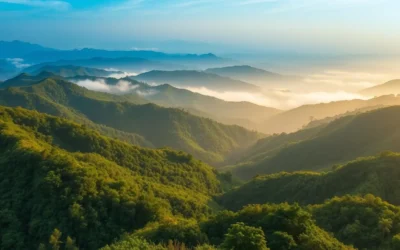
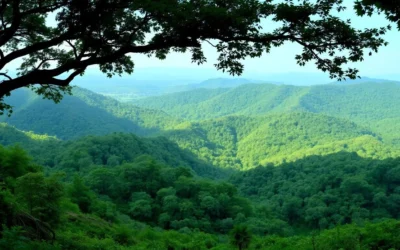
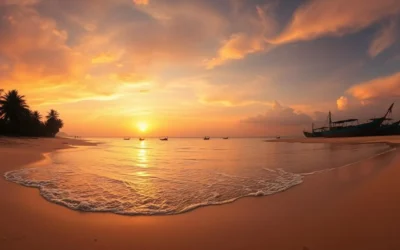
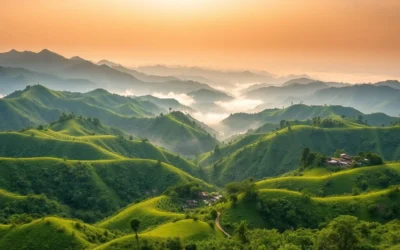
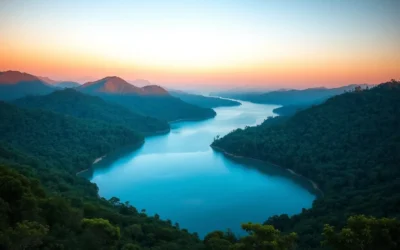
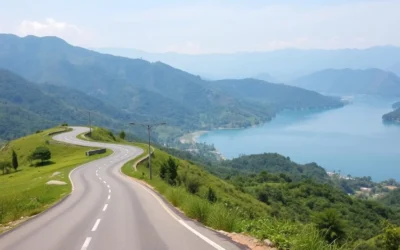
0 Comments